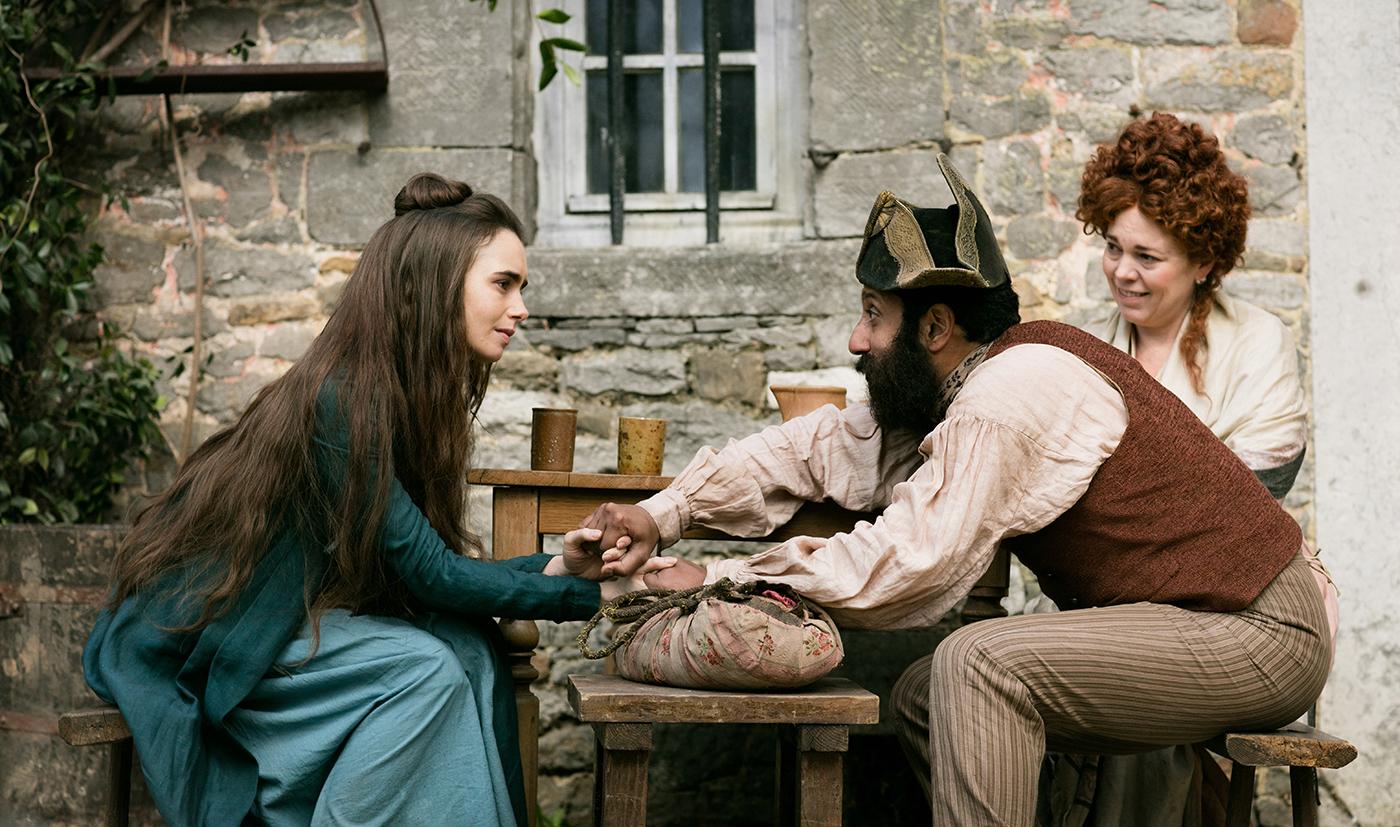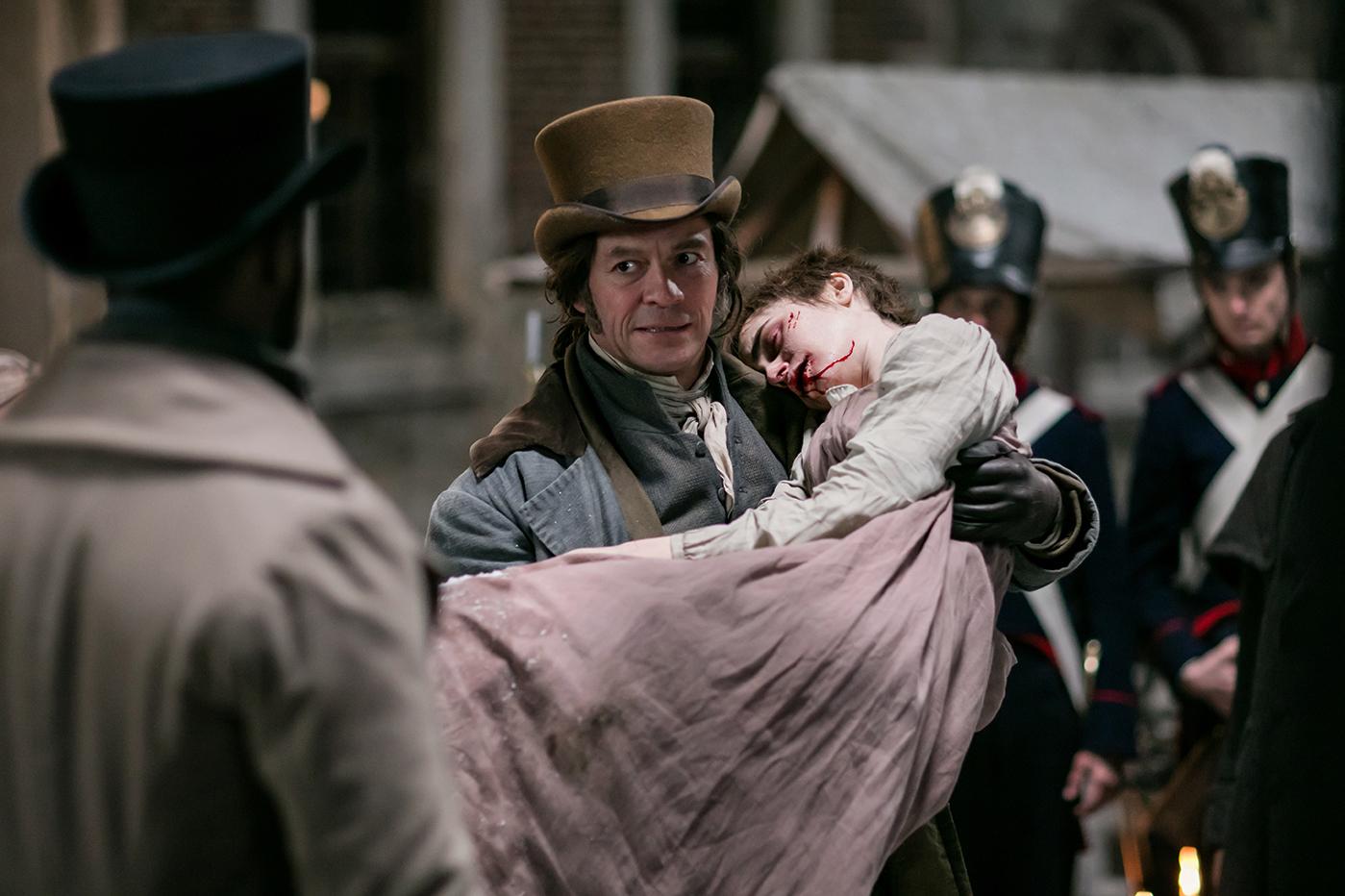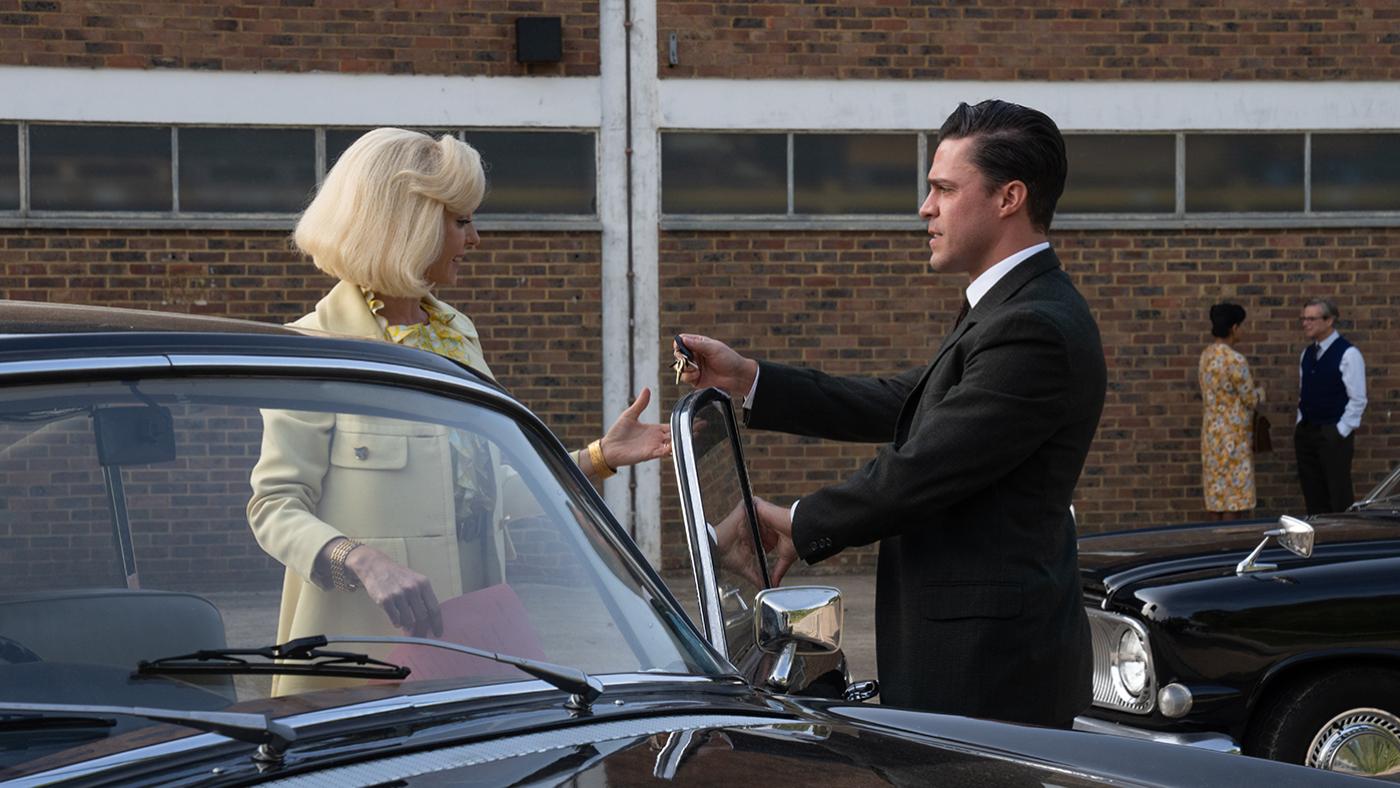'Les Misérables' Recap: Part 2
Daniel Hautzinger
April 21, 2019

Les Misérables is available to stream. Recap the previous and following parts.
Are humans born wicked, or are they driven to misdeeds by circumstance? The lawman Javert claims the former, the ex-convict Jean Valjean has come to believe the latter. The clash between their philosophies impacts more than just their own lives.
Having been left by her lover to fend for herself and her daughter Cosette, the poor seamstress Fantine has left Paris to look for work in Montreuil, where she has heard there are plenty of jobs. On her way to that northern city, she stops in a village and meets Madame Thénardier, who runs an inn with her husband. He’s a war hero who carried a colonel to safety on his back at Waterloo, Thénardier says, exaggerating the truth – but she’s not the only one lying: Fantine tells her that Cosette’s father is dead (he’s not). Watching her daughter play with Thénardier’s children, Fantine asks the innkeeper to take care of Cosette while she finds work. She’ll pay. Monsieur Thénardier senses an opportunity to make money and appears, quickly inflating the rate and asking for a substantial sum of money as a deposit. Fantine agrees.
She arrives in Montreuil to see an inauguration: a popular businessman has been persuaded by the people to become mayor. Monsieur Madeleine is a selfless and generous factory owner who saved children from a burning building the day he arrived in town several years ago. He has reduced crime in the town by providing employment to all who ask for it. He also happens to be an ex-convict whose real name is Jean Valjean, not that anyone knows that. He has kept the silver candlesticks given to him by Bishop Myriel; they now stand on the mantelpiece of his well-appointed house.
When Fantine applies to Madeleine for work in his factory, he quickly accepts her, but also asks about her family life. She insists to him and his overseer that she is alone in the world.
With a steady income in hand, the illiterate Fantine has a public scribe write to Cosette. The Thénardiers don’t read the young girl the letter; instead, they ask Fantine for more money. Cosette has become a sort of indentured servant, forced to scrub the floors of the inn and bear witness to Monsieur Thénardier’s abuse of his wife and his wife’s lack of love for their son, Gavroche.
 Fantine leaves Cosette with the Thénardiers, who extort increasingly exorbitant sums from her. Photo: Robert Viglasky / Lookout Point
Fantine leaves Cosette with the Thénardiers, who extort increasingly exorbitant sums from her. Photo: Robert Viglasky / Lookout Point
The Thénardiers are not the only caretakers abusing their guardianship of a child. Gillenormand, the staunchly royalist father-in-law of Colonel Pontmercy, has taught Pontmercy’s son Marius to slander his revolutionary father’s name. But when Gillenormand receives word that Pontmercy is on his deathbed, Marius’s nurse Nicolette convinces him to let Marius see his father. Pontmercy tells his son he must do good for Thénardier if he ever meets him, for Thénardier saved his life. And Pontmercy bestows his revolutionary heritage on Marius, granting his son the title that was given him by Napoleon: Baron Pontmercy.
Once upon a time, Jean Valjean was also cruel to a child, when he stole a coin from him – it is this incident that precipitated his transformation into a good man. Javert, Jean’s overseer when he was in prison, has been obsessed with finding Jean and returning him to prison for life ever since hearing of this crime against an innocent. Javert has managed to track Jean to Montreuil – and has gotten himself the position of chief of police for the town. He has no evidence that Madeleine is Jean, but his hint-laden, obliquely threatening conversation with the mayor makes it clear that he knows the truth. He believes Madeleine gained his wealth via wickedness – an evil man has chosen to be that way, and cannot change – and he’s happy to wait for evidence.
When a cart collapses on a man and Jean saves him by lifting the cart with brute strength, just as he did for a guard while in prison, Javert believes he has proof. He rides to Paris and tells the chief inspector of the police that he has identified Jean Valjean. But Jean was arrested a few days earlier in a different part of the country.
Immediately after saving the man, which he did with full knowledge that it would reveal himself to Javert, Jean learns of accusations against Fantine. His factory’s overseer, annoyed that Fantine had made a bauble for Cosette while at the factory after finishing her quota, has investigated Fantine’s past and learned about Cosette. The Thénardiers told her that Fantine was probably a prostitute. The overseer brings this to Madeleine’s attention, and, still angry and unnerved by Javert, he fires Fantine for not telling him about her daughter. He does at least give her 50 francs. She calls him a monster.
Jean goes home and buries the Bishop’s candlesticks and some money in the woods.
It is at this low point that the Thénardiers decide to extort Fantine for a hefty fee: Cosette is sick, they lie, and they need to buy medicine. The scribe who writes and reads letters for Fantine asks her why she doesn’t just bring Cosette to live with her in Montreuil, but Fantine doesn’t want her daughter to share her wretched life – she thinks she is happy with the Thénardiers. Then there are always ways for a pretty young woman to make money, the scribe tells her.
 Fantine blames her terrible circumstances on Madeleine (Jean Valjean), who fired her. Photo: Robert Viglasky / Lookout Point
Fantine blames her terrible circumstances on Madeleine (Jean Valjean), who fired her. Photo: Robert Viglasky / Lookout Point
So Fantine sells her hair and her two front teeth to pay the Thénardiers. Believing Fantine must be rich, since she could afford the exorbitant sum they requested, the innkeepers demand even more. The desperate Fantine turns to prostitution – but, as the scribe points out, she is now worth less because she has sold her hair and teeth. When a wealthy man taunts her and she wearily defends herself, he feigns respect – then shoves dirty snow down her back. She attacks him in retaliation.
Javert arrests her, but before he can drag her to prison Jean appears and intervenes. Fantine spits on him, again calling him a monster – she blames him for her woes. Fantine begs Javert not to arrest her, pleading that “I’ll be a good little whore now, they can do what they like,” as long as she can make money to provide for Cosette. Distressed by how far Fantine has fallen and blaming himself, Jean vows to take her and Cosette into his care; he was wrong to fire her, but now he will make amends.
Javert refuses to let Jean intervene in “justice,” but Jean, as mayor, outranks Javert. “You would risk your name for the lowest of the low?” Javert asks. Jean takes Fantine to the infirmary – she is very ill – and sits by her bedside, promising to bring Cosette to her.
Javert interrupts Jean’s vigil. He offers his resignation as police chief and apologizes for his conduct. He admits that he reported Jean to the chief inspector, but that he now knows “Madeleine” cannot be Jean: the man arrested as Jean will soon be sentenced for life. Whether this confession is because Javert truly believes “Madeleine” cannot be Jean, now that he has seen the generosity of which he is capable, or if it is simply a cynical tactic to test Jean’s goodness is not clear – but it forces Jean’s hand.
Jean tells his factory overseer to fetch Cosette from the Thénardiers – Fantine is dying, and needs to see her daughter. He would do it himself, but he has somewhere else to be. He burns the yellow papers marking him as a prisoner and brands his palm with the coin he took from the boy all those years ago – he has kept both papers and coin hidden. Then he gallops off into the countryside.







